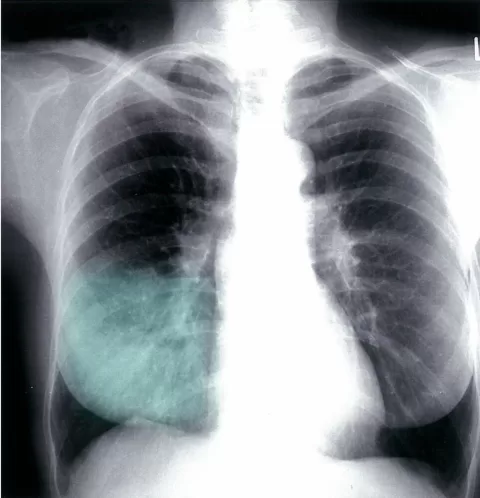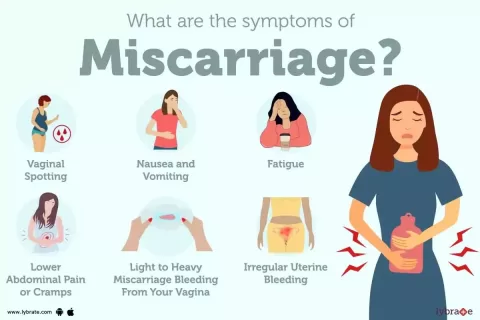In recent years, police misconduct lawsuits in California have garnered significant attention, especially when they involve tragic incidents of negligence such as those by the California Highway Patrol. A notable case highlights the serious consequences of a police officer failing to provide essential medical care at the scene of a roadside emergency. When an officer arrested a man, mistakenly believing he was under the influence, the individual was actually suffering from a stroke, raising critical questions about law enforcement civil rights and accountability. This pivotal lawsuit not only challenges qualified immunity in California but also emphasizes the importance of addressing police negligence cases that can lead to devastating results for victims and their families. The outcome of this case could redefine the parameters of emergency medical care rights in the context of law enforcement actions, establishing new precedents for future litigation.
The legal landscape surrounding disputes involving police performance in California is evolving, particularly as families seek justice through civil lawsuits against law enforcement agencies. One prominent instance under scrutiny is a California Highway Patrol case, where an officer’s failure to recognize the medical needs of an accident victim led to severe ramifications. These scenarios highlight the broader implications of civil rights infringements and the doctrine of qualified immunity in the realm of policing. Victims of police negligence face complex battles as they advocate for their rights to timely medical intervention, underscoring the vital necessity for law enforcement to act within the scope of their duties. As the legal system navigates these challenging waters, it sets the stage for essential discussions on the responsibilities of police in safeguarding the well-being of individuals they encounter during their duties.
Understanding Police Misconduct Lawsuits in California
Police misconduct lawsuits are an important legal avenue for holding law enforcement accountable for inappropriate actions. In California, individuals affected by police negligence can file claims based on violations of civil rights, such as unlawful arrest, excessive force, or failure to provide necessary medical care. The recent case involving the California Highway Patrol (CHP) demonstrates that families can sue police departments if their loved ones suffer harm due to an officer’s negligent behavior. Such lawsuits not only seek remedies for damages but also serve to promote reforms within law enforcement agencies.
When pursuing a police misconduct lawsuit in California, several legal challenges may arise, including the concept of qualified immunity. This legal doctrine can shield officers from liability unless they have violated clearly established constitutional rights. However, as seen in the ruling concerning Officer Diaz-Durazo, courts can sometimes overturn qualified immunity when evidence suggests that the officer’s actions failed to meet the standard of reasonable care. Such cases often highlight the importance of emergency medical care rights that victims are entitled to receive during police interactions.
The Role of Qualified Immunity in Police Negligence Cases
Qualified immunity is a significant obstacle in police misconduct lawsuits, especially in California. This legal principle protects law enforcement officers from being held personally liable unless the plaintiff proves that their rights were violated in a manner that was clearly established in previous legal precedents. In cases involving police negligence, like the one concerning the CHP officer, the challenge lies in demonstrating that the officer’s actions were unreasonable, resulting in harm to an individual. The appellate court’s reversal in this case highlights that such determinations can evolve as courts re-evaluate existing law.
Though qualified immunity aims to safeguard officers from unjust lawsuits, it can also hinder accountability. The recent appellate decision in the case of Steven D’Braunstein illustrates how courts can challenge this immunity if an officer’s inaction leads to significant consequences, such as severe injury or even death. This aspect is particularly critical in cases that involve emergency medical care rights, emphasizing the responsibility of law enforcement to act promptly and appropriately when individuals are in dire need of medical assistance.
Emergency Medical Care Rights Under Police Custody
Emergency medical care rights refer to the legal entitlements of individuals who are in custody or under police supervision to receive timely medical attention. This principle comes into play during police arrests, where officers must ensure that individuals have access to necessary medical care if they demonstrate signs of distress or medical emergencies. The recent case involving the California Highway Patrol shines a spotlight on these rights, as it revealed how the failure of an officer to secure medical care contributed significantly to the deterioration of an accident victim’s condition.
In California, law enforcement agencies have a legal obligation under the Fourth Amendment to provide reasonable medical care post-arrest. This extends to situations where an officer fails to recognize symptoms warranting urgent medical intervention, leading to tragic outcomes, such as the irreversible brain damage suffered by Steven D’Braunstein. The violation of emergency medical care rights by failing to call for an ambulance or provide immediate assistance can form the basis of a police misconduct lawsuit, highlighting the need for training and procedures that ensure that all officers can adequately respond to medical emergencies.
Implications of Police Negligence for Victims and Families
The implications of police negligence extend far beyond legal consequences; they profoundly affect the lives of victims and their families. Cases like that of Steven D’Braunstein highlight the often devastating outcomes when officers fail to act appropriately during emergencies. Families are left to grapple with not only the immediate physical and emotional toll but also long-term impacts, including the financial burdens associated with medical care and possible loss of income. The psychological effects can be equally significant, as family members cope with the realization that their loved one may have suffered preventable harm due to police inaction.
Moreover, police negligence can erode public trust in law enforcement, further complicating community-police relations. When families take actionable steps toward legal redress, such as filing lawsuits against agencies like the California Highway Patrol, they inadvertently advocate for accountability and change within the system. Successful litigation can lead to enhanced training protocols, valid policy reforms, and an increased awareness of emergency medical care rights that protect individuals under law enforcement authority.
The Process of Filing a Police Misconduct Lawsuit
Filing a police misconduct lawsuit in California involves several critical steps that victims and their families must navigate to seek justice and compensation. The process begins by gathering evidence, including incident reports, medical records, and witness statements, to build a solid case against the officer or department involved. It is essential for plaintiffs to demonstrate that their constitutional rights were violated through acts of negligence, discrimination, or excessive force. In California, legal deadlines known as statutes of limitations also dictate the timeframe within which claims must be filed, making it crucial for victims to act swiftly.
Once the necessary documentation is prepared, the next step often involves filing a notice of claim with the appropriate police department, allowing them to respond before pursuing a lawsuit in court. This requirement is significant, as it gives law enforcement agencies the opportunity to address the allegations before formal litigation. If the matter does not resolve through this initial phase, families may then file a civil lawsuit aiming to hold the officer accountable and seek damages for medical costs, psychological trauma, and other related expenses arising from the incident.
Navigating Legal Challenges in Police Misconduct Cases
Navigating the legal landscape of police misconduct cases can be particularly challenging due to complex nuances and potential defenses, such as qualified immunity. For families pursuing justice, it is essential to understand the various legal hurdles they may encounter. Each case can be distinct based on the specific circumstances surrounding the incident, including details like the actions of law enforcement officers and the resultant harm. This complexity requires plaintiffs to engage experienced legal counsel familiar with the relevant state and federal laws.
Additionally, the burden of proof lies heavily on the plaintiff, necessitating a detailed presentation of facts to convince a judge or jury of police negligence. This often involves interpreting previous court rulings to establish that the officer’s actions deviated from reasonable standards of care and resulted in a violation of civil rights. As families prepare for litigation, they must be proactive in collecting documentary evidence and witness testimonies to fortify their claims against potential defenses raised by law enforcement.
Case Studies of Successful Police Misconduct Lawsuits
Reviewing case studies of successful police misconduct lawsuits provides valuable insights into the elements required for a compelling legal argument. Recent court rulings, especially those involving law enforcement negligence, emphasize the importance of establishing clear evidence that officers acted outside the bounds of accepted protocols, particularly relating to emergency medical care rights. These cases often reveal how courts evaluate the context of an officer’s decisions and the consequences of neglecting their duties.
For example, in cases involving delayed medical assistance similar to the CHP incident, courts may scrutinize whether the officer’s conduct constituted a gross violation of established legal norms. These successful lawsuits often stem from thorough documentation of each incident and compelling testimonies from medical professionals who can attest to the urgency of the situation. Victims benefiting from such cases not only receive compensation for their suffering but also contribute to heightened accountability within law enforcement agencies.
Legislative Changes and Their Impact on Police Accountability
Recent legislative changes aimed at increasing police accountability directly affect how misconduct cases are processed in California. New laws that strengthen the rights of individuals during interactions with law enforcement and those involving emergency medical care have been implemented to ensure that victims have recourse if they are wronged. Legislation aimed at limiting the scope of qualified immunity is particularly significant, as it empowers individuals to seek justice against officers who may have previously escaped liability for negligent behavior.
As laws evolve, they create an environment where victims and their families are encouraged to pursue claims against police departments more decisively. The introduction of measures that promote transparency and accountability ensures that victims of police negligence, like Steven D’Braunstein, may have better chances of receiving justice and fair reparations. These changes in legislation not only protect the rights of individuals but also foster an overall culture of accountability within law enforcement agencies.
Frequently Asked Questions
What can I claim in a police misconduct lawsuit in California?
In a police misconduct lawsuit in California, you can claim damages for violations of your constitutional rights, emotional distress, and punitive damages. If a police officer, like in a California Highway Patrol lawsuit, fails to provide emergency medical care or misjudges a situation, it may constitute negligence and warrant legal action.
How does qualified immunity affect police misconduct lawsuits in California?
Qualified immunity in California protects law enforcement officers from lawsuits unless they violated clearly established constitutional rights. In cases involving police misconduct, such as failure to summon medical care during an emergency, courts may determine if the officer acted reasonably, impacting the eligibility for qualified immunity.
Can families sue the California Highway Patrol for police negligence?
Yes, families can sue the California Highway Patrol for police negligence, particularly if an officer fails to provide necessary care, as seen in cases where an officer misdiagnoses a medical emergency. Such lawsuits focus on the violation of civil rights and the duty of care owed by police officers.
What rights do individuals have regarding emergency medical care after an arrest in California?
In California, individuals have the right to receive reasonable medical care after an arrest. If law enforcement fails to provide necessary emergency medical care, such as summoning an ambulance when needed, it may result in a police misconduct lawsuit, highlighting violations of civil rights.
What should be included in a police misconduct lawsuit against law enforcement in California?
A police misconduct lawsuit against law enforcement in California should include a clear statement of the facts, evidence of the officer’s conduct, and any resulting harm or injury, such as medical neglect following an incident. This framework is essential for cases that challenge qualified immunity and seek accountability for police actions.
| Key Point | Details |
|---|---|
| Incident Background | Officer Samantha Diaz-Durazo failed to call an ambulance for Steven D’Braunstein, who had suffered a stroke after a car accident. |
| Legal Rulings | The 9th U.S. Circuit Court of Appeals reversed the lower court’s dismissal, allowing the family to sue. |
| Officer’s Defense | Diaz-Durazo claims that D’Braunstein’s stroke symptoms began the night before and timely treatment wouldn’t have made a difference. |
| Outcome of Delayed Care | D’Braunstein asserts that the delayed emergency care caused significant brain damage, necessitating long-term care. |
| Court’s Findings | The court concluded that a jury could believe the officer violated D’Braunstein’s constitutional rights by failing to provide timely medical care. |
Summary
A police misconduct lawsuit in California can arise when law enforcement officers fail to provide adequate medical care, as evidenced in the recent ruling involving Officer Samantha Diaz-Durazo. The 9th U.S. Circuit Court of Appeals determined that the California Highway Patrol could be liable in the tragic case of Steven D’Braunstein, who experienced a stroke during a traffic stop but received no immediate medical assistance. This highlights the crucial legal responsibilities of officers in emergency situations and the standards of care mandated by law.
The content provided on this blog (e.g., symptom descriptions, health tips, or general advice) is for informational purposes only and is not a substitute for professional medical advice, diagnosis, or treatment. Always seek the guidance of your physician or other qualified healthcare provider with any questions you may have regarding a medical condition. Never disregard professional medical advice or delay seeking it because of something you have read on this website. If you believe you may have a medical emergency, call your doctor or emergency services immediately. Reliance on any information provided by this blog is solely at your own risk.








